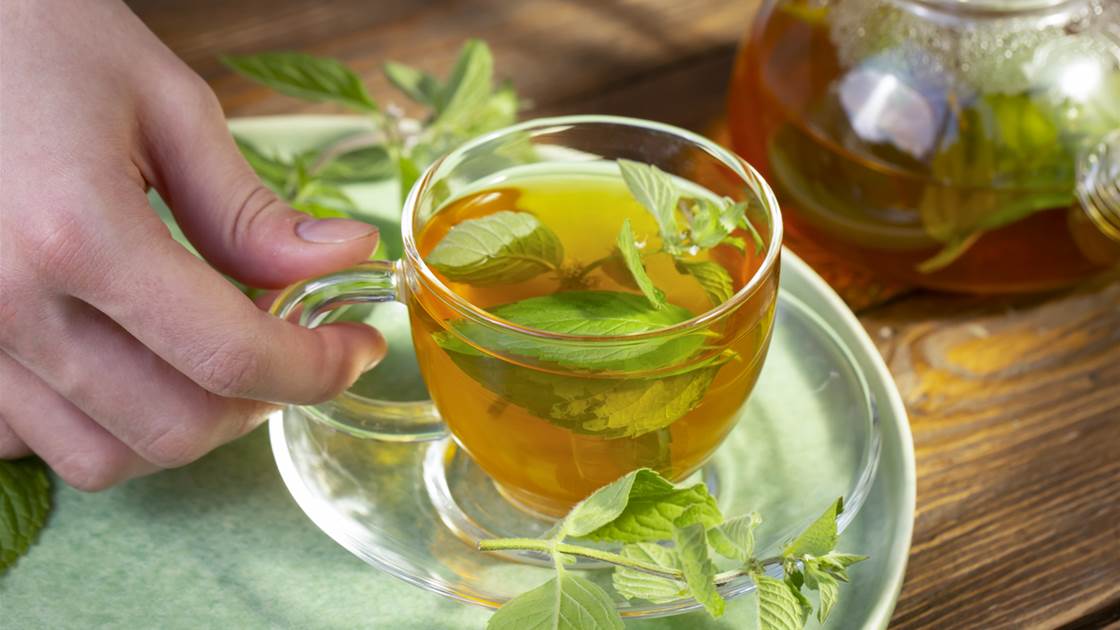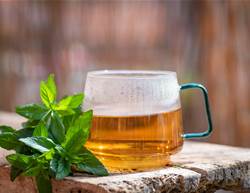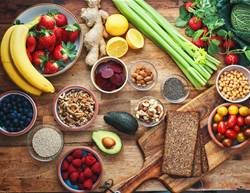Whether it’s bloating, a bit too much gas or that uncomfortable feeling of fullness, digestive niggles can put a dampener on your day. Dietitians see daily how food choices influence wellbeing, and that’s where the best teas for digestion can help.
A balanced diet rich in fibre and fluids is the cornerstone of a happy gut, but sometimes an extra nudge is useful. For centuries, cultures around the world have turned to specific teas to soothe the stomach and ease discomfort. Many of these botanicals contain natural compounds that support the digestive system by relaxing intestinal muscles, reducing inflammation and settling the gut. Think of them as a gentle, natural way to give your digestive tract some TLC.
Best teas for digestion
Among the sea of options, a few stand out for digestive support. Here’s a science-backed pick.
Ginger tea
Ginger is a true standout in the world of digestive remedies. Its main active compound, gingerol, has well-studied anti-inflammatory and antioxidant properties, which is why ginger is often used when nausea strikes. A warm cup of ginger tea can help relieve nausea from motion sickness, indigestion or even chemotherapy.
Ginger may also support gastric emptying, helping the stomach move contents into the small intestine more efficiently. That can reduce the sense that food is “sitting” in your stomach and get your digestive rhythm back on track. To make it at home, steep a few slices of fresh ginger root in hot water for five to 10 minutes, then sip slowly.
Peppermint tea
Refreshing and calming, peppermint can be gentle on the gut. Its key compound, menthol, has an antispasmodic effect on the smooth muscle of the digestive tract, which may ease cramping, trapped wind and the bloat often seen with irritable bowel syndrome.
By relaxing the bowel, gas can pass more easily and discomfort settles. A cup after a heavy meal can feel like a reset for your tummy. If you experience reflux or GORD (gastro-oesophageal reflux disease), note that peppermint may relax the lower oesophageal sphincter and worsen symptoms in some people.
Chamomile tea
Known for promoting relaxation and sleep, chamomile’s soothing qualities may extend to digestion. It has mild antispasmodic and anti-inflammatory actions that can help settle cramping or bloating. If stress is driving your gut symptoms, chamomile before bed can calm the nervous system and the digestive tract at the same time, helping you wake more comfortable.
Fennel tea
If gas and bloating are your main gripes, fennel is a classic carminative herb. Compounds in fennel seeds relax the muscles of the gastrointestinal tract, helping trapped gas move along and reducing that stretched, uncomfortable feeling. Fennel may also support bile flow, which helps break down dietary fat. Expect a gentle, slightly sweet liquorice-like flavour. To make it, lightly crush a teaspoon of fennel seeds and steep in hot water for 5–10 minutes, then strain and sip.
Green tea
Best known for brain perks and antioxidants, green tea can also support a happier gut. Polyphenols in green tea may encourage the growth of beneficial bacteria while discouraging harmful strains such as H. pylori, a bacterium linked with stomach ulcers and, in some cases, stomach cancer. It does contain caffeine, so if you are sensitive, sip it earlier in the day.
How often should you drink tea for digestion?
Working these teas into your routine is an easy way to care for your digestive system. For most adults, one to three cups a day is a sensible guide. Try a cup after meals to aid digestion, mid-afternoon as a calming ritual or before bed to settle the system. Consistency usually brings the best results.
Potential side effects
Even gentle remedies can have downsides. Caffeine in green tea may cause jitters or disturb sleep. Peppermint may aggravate reflux in some people. Large amounts of ginger can trigger mild heartburn or diarrhoea. If you are pregnant, breastfeeding or have a health condition such as liver or gallbladder disease, check with your GP or pharmacist before adding herbal teas. Some herbs can interact with medicines, including blood thinners.
The bottom line
If bloating, discomfort or sluggish digestion keep hanging around, give these classic brews a regular spot in your day. Ginger, peppermint, chamomile, fennel and green tea each offer gentle, evidence-backed benefits and can help your gut feel a little lighter. Think of them as simple add-ons to a balanced diet rich in fibre and fluids.
If symptoms persist or worsen, check in with a healthcare professional for tailored advice.










